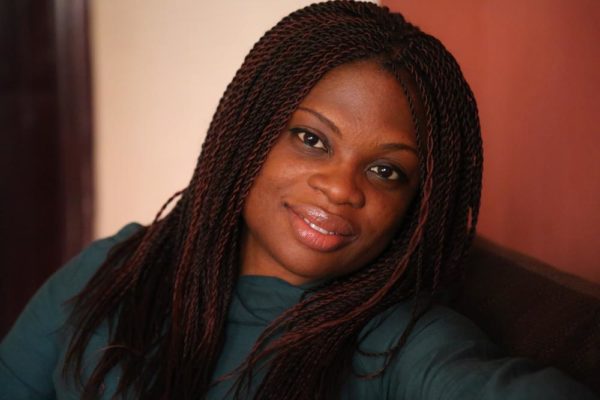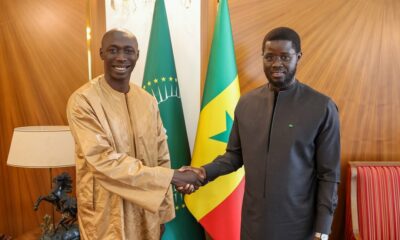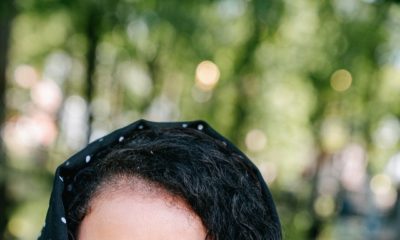Features
Beti Baiye: Surviving Child Abuse & Protecting the Rights of the Nigerian Child
 Recently, I read yet another story about yet another Nigerian child who had been sexually abused by a teacher in her school. When I shared it with my husband he asked, “How can you stand to read these stories?” How can I not? Not too many people like to talk about this because it hits closer to home than we care to admit. It exposes our inadequacies as parents and our refusal to collectively deal with the rise of depravity in our society.
Recently, I read yet another story about yet another Nigerian child who had been sexually abused by a teacher in her school. When I shared it with my husband he asked, “How can you stand to read these stories?” How can I not? Not too many people like to talk about this because it hits closer to home than we care to admit. It exposes our inadequacies as parents and our refusal to collectively deal with the rise of depravity in our society.
When I was a child, I believed that there was something wrong with me. I was like Super Ted, a 90s cartoon character who was found to be defective after he was made and so was thrown into an old dark store room. Unlike him, I believed that I could not be fixed, no spotty man would come from outer space to fix me and give me special powers. Now, why would an 8-year-old think such thoughts? What happened to thoughts of birthday parties and best friends and everything pink?
I was abused. My uncle took me and did things to me that no adult had any business doing to a little child – not once but several times over – and with that, he stamped my fate, leaving me to forever think that I was the defective one. But then he did more than that, he took away my memories. I was so traumatised by the abuse that I blocked out the memory of it and along with it, fun childhood memories.
I told no one; but years later, I realised that my parents knew. They quietly dealt with it their own way and everyone moved on leaving me behind. So whenever I see a story about another victim, I ask myself, is anyone getting help for her? Is anyone concerned about the damage this dastardly act has done to her mind? Or are we just concerned about what it will do to the family name – if it all gets out?
Are we more intent on protecting ourselves instead of protecting the lives of the ones we brought into the world, who by the way, never asked to be brought in? Does anyone ever think about the millions of damaged young women we have walking the streets? Fixed smiles on their faces but a huge gash of hurt in their hearts and a gaping hole where childhood memories should live? Does anyone ever think of these children who were forced to become women even before they learnt how to be girls? Does anyone spare them more than a thought? I don’t have figures because in Nigeria, we suffer, among other things, a dearth of record keeping but I believe that if I were to do a roll call, millions of young women will step up who, like me, became statistics that were never documented.
These days, child molestation seems to be on the rise; every other day, we read or hear about a new case. Strangely, these crimes are not committed by outsiders. It is the uncle, the driver, the teacher – the trusted ones, the ones who have open access to these children. How then do we protect our children?
Short of spending every moment – sleeping and waking – with their children, what defense do parents have against these pedophiles? To begin with, here are a few pointers. As much as you teach your child love, also teach your child that loving isn’t always loving. Teach them to recognise ‘Stay Away’ zones in their bodies. Teach them to recognise threatening behaviour. Teach them to disagree respectfully. Teach them to run if they need to; shout if they need to. Teach them that they don’t have to obey all adults. Teach them that adults can be bad too. Above all, make them know that they can trust you with anything.
If your child has been molested and you are tempted to ignore it, don’t. Formal and informal help is available. In Nigeria today, we have organisations whose main focus is working with children who have been abused. We also have a rising number of doctors who are trained to handle this kind of trauma. Most of all, we have you, the parent. Nothing heals a child more than having you, the person they trust the most, speak words of assurance.
If you are an adult who was abused but never got help, do not allow your experience to be ignored, demeaned or trivialised. Begin by giving yourself permission and finding the courage to heal. Reach out to someone if you need help. Talk to a family member or a friend, find the right therapist or seek out a religious guide. Talk to someone you love and trust who has your best interest at heart. Do what you have to do but please don’t go through it alone.
In the words of Vashti Vega, “Don’t turn your face away. Once you’ve seen, you can no longer act like you don’t know…Now that you’re aware of the problem, you cannot pretend you don’t care. To be concerned is to be human. To act is to care.” Let us recognize and acknowledge the problem around us. Let us be the ones to show that we are not comfortable that our children are made to live in a country where sex offenders go unidentified.
Let us be outraged, let us be loud, let us be bold. Let us be deliberate about creating an abuse free world for our children.


















